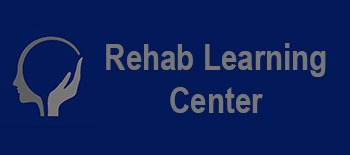ORTHOPEDIC CLINICAL EXAMINATION BOOK

Orthopedic Clinical Examination With Web Resource provides readers with fundamental knowledge for developing proficiency at performing systematic orthopedic evaluations. Michael P. Reiman, who is internationally respected for his teaching, clinical practice, and research focused on orthopedic assessment and treatment methods, presents an evidence-based guide on the examination process for various parts of the body.
The text takes a structured approach, moving from broad to focused, that guides clinicians in examining each client and condition. The text presents specific components of the examination in the same sequence, ensuring repetition and improved consistency in learning. Screenings are used early in the examination sequence not only to determine the appropriateness of performing an orthopedic examination but also to rule out other potential pain generators and thereby narrow the focus of the examination.
Orthopedic Clinical Examination emphasizes evidence-based practice and, therefore, focuses on tests that are clinically relevant, providing students and clinicians with the most appropriate testing options rather than listing tests with no regard for their clinical value. Both treatment-based and pathological-based diagnostic styles are covered in detail so that readers will gain a thorough understanding of both approaches and be able to implement them separately or in tandem. In addition to musculoskeletal testing, the text provides information on subjective history, observation, diagnostic imaging, systems, neurological screening, and performance-based measures in each examination.
The text is organized into five parts and is structured such that readers will first acquire the requisite knowledge about anatomy and the examination process before advancing to acquiring specific examination skills. Part I presents information about the musculoskeletal and nervous systems, as well as tissue behavior and healing. Part II introduces the principles of the examination sequence. Parts III and IV present the region-specific examination sequence for evaluating clients, including specifics on analyzing the head, spine, and extremities. Each chapter in these two parts covers the anatomy of the region, various types of injuries that occur, specific tests and measures that can be used, and cross-references to specific case studies for further review. Part V highlights additional considerations that may be necessary for special populations during the examination process.
Orthopedic Clinical Examination includes learning tools that enhance comprehension and engagement:
- Full-color photographs and illustrations demonstrate anatomy, patient conditions, and clinician positioning to serve as a visual reference and ensure proper testing techniques.
- A library of 50 videos, found in the web resource, provides students with visual demonstrations of assessments and treatments.
- Color-coding graphics throughout chapters help readers quickly discern whether the evidence supporting the reported finding is ideal, good, or less than good.
- Overviews of common orthopedic conditions for each body region are in the 12 applied chapters.
- Twenty-four case studies guide users in the proper questions to ask and steps to take in conducting examinations.
- Links to abstracts of articles provide additional clinical learning scenarios.
With Orthopedic Clinical Examination, current and future clinicians will gain the knowledge and confidence they need to perform examinations and provide optimal patient care.

